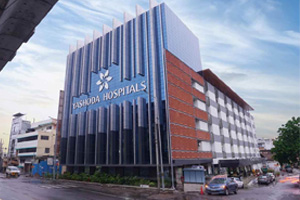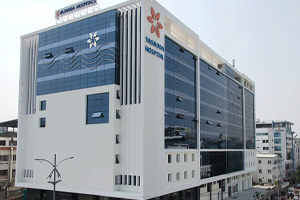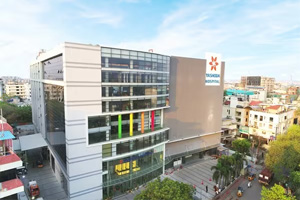Why Choose Yashoda Hospitals for Cornea Transplant?
Yashoda Hospitals leads in advanced eye care, offering cutting-edge surgical procedures and a team of experienced ophthalmologists.
Most Trusted and Advanced Cornea Transplant Centre
Yashoda Hospitals is recognized as the Best Hospital for Corneal Transplants in Hyderabad, offering exceptional surgical services.
Expert Team of Ophthalmologists
The best team of ophthalmologists provides treatment for a wide range of eye disorders to patients of all ages who have expertise in various ophthalmology procedures and services like corneal transplants.
Cutting-edge technologies
Our state-of-the-art operation theaters and innovative techniques ensure optimal outcomes for various eye conditions, including corneal damage.
A seamless eye care experience for every patient
Our collaborative approach, bolstered by seamless coordination between specialists and support staff, ensures a seamless journey for every patient, from diagnosis to recovery.
What is Corneal transplant?
Corneal transplant surgery, also referred to as keratoplasty, involves replacing a portion of the cornea with donor tissue to help restore vision, lessen pain, and improve the appearance of a damaged or diseased cornea.
The cornea is an essential component of the eye that contains proteins and blood vessels, & any harm to it may result in vision loss. Infections, poor diet, and eye trauma or injury primarily cause corneal disease. Symptoms of a corneal disease are swollen eyelids, blurred vision, and watery eyes. An experienced cornea specialist can precisely diagnose various diseases. Treatments vary, from medications for dry eyes to corneal transplant surgery, effectively addressing corneal blindness and restoring vision.
Types of Cornea Transplants
A cornea transplant involves removing the entire thickness or part of the diseased cornea and replacing it with healthy donor tissue. The cornea surgeon will choose the appropriate method, which may include:
- Penetrating Keratoplasty: A full-thickness transplant where the surgeon removes a small disk of corneal tissue and replaces it with donor tissue, secured with stitches that may be removed later.
- Endothelial Keratoplasty: This method involves the removal of diseased tissue from the back layers of the cornea, including the endothelium and Descemet membrane.
- Anterior Lamellar Keratoplasty (ALK): Removes diseased tissue from the front corneal layers but leaves the back endothelial layer intact.
- Artificial Cornea Transplant (Keratoprosthesis): For patients not eligible for a donor cornea transplant, an artificial cornea may be implanted.
| Procedure Name | Cornea Transplant |
|---|
Cornea Transplant: Pre-Op & Post-Op Care
Preparation: Imaging tests, such as X-rays and physical examinations are performed to evaluate the fracture and properly plan the procedure. Additionally, the patient is asked to refrain from taking any medications that could interfere with the procedure, such as blood thinners, and is instructed to fast for a few hours.
During the procedure: Once in the procedure room, you will be administered with local anesthesia to reduce the likelihood of experiencing pain during the procedure. Initially, the surgeon removes the damaged portion of the cornea by making small circular cut in the cornea. Followed by, a donor cornea tissue which is cut such that it fits in the Finally, any cuts are closed, & a cast is put on for additional support.
Recovery: The patient may require a hospital stay for a few days. The recovery period may vary from individual to individual; however, the ideal healing period ranges from 3 to 4 weeks or much longer.
Post-operative care :
- Apply eye drops and other medications as directed for pain, swelling, and infection; use immune-suppressive drops to avoid rejection.
- To protect your eye while it heals, wear glasses or eye shields.
- Depending on the type of transplant, sleeping on your back for a while after surgery aids in the proper settling of the new corneal tissue.
- Gradually return to your usual activities as directed by your surgeon.
- Avoid pressing or rubbing your eyes, and take precautions to keep them safe.
- Regular check-ups with an ophthalmologist in the first year are essential to monitor recovery and detect complications.
Benefits of Cornea Transplant at Yashoda Hospitals
- Improved corneal functionality and appearance
- Corrects vision impairment.
- Long-lasting benefits
- Less likelihood of rejection.
- Minimizes the pain caused by corneal damage
- High success rates.



























 Appointment
Appointment WhatsApp
WhatsApp Call
Call More
More

